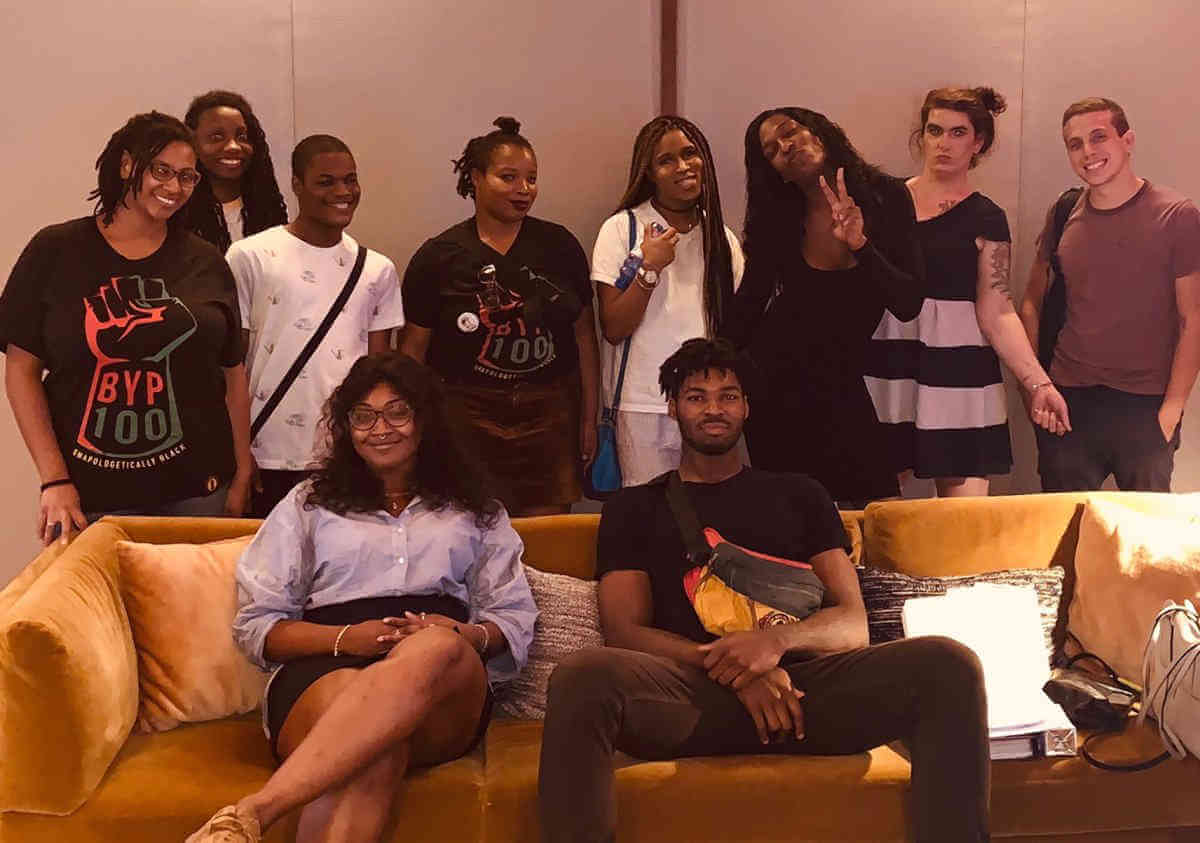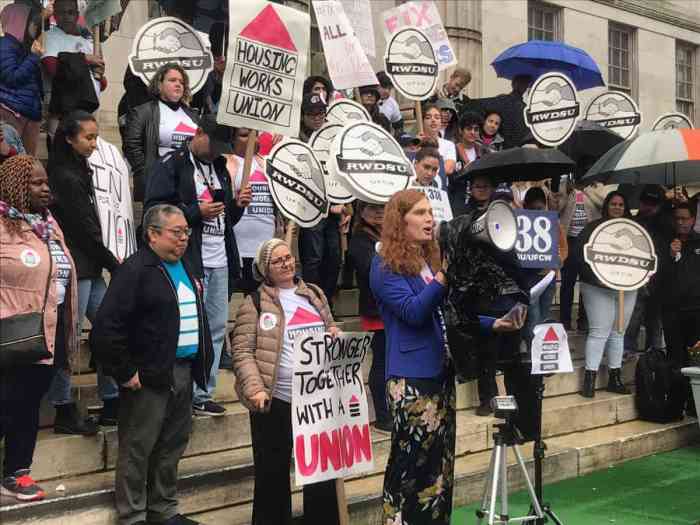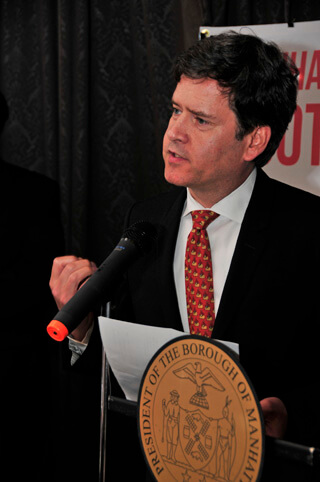The emerging movement to decriminalize sex work is gaining momentum in Washington, DC, where a letter in support of a comprehensive bill to fully remove criminal penalties for consenting sex workers and customers above the age of 18 garnered signatures from more than 70 organizations.
The DC measure would also end criminal penalties for landlords and properties facilitating sex work.
The bill, known as the Community Safety and Health Amendment Act of 2019, spells out the creation of a task force to oversee its implementation.
The law faltered in the last session of the District’s Council, but is back amidst a dramatic shift this year in the nationwide public discourse surrounding sex work decriminalization. The DecrimnowDC coalition is spearheading the local movement in the same way that DecrimNY, just launched in February of this year, has advanced a number of legislative priorities into the mainstream political discussion in New York — in good measure by highlighting the marginalization of transgender women of color who make up a significant component of the sex work population.
The letter delivered by the 72 organizations to the DC Council echoed that theme, arguing that decriminalization would result in “improving public health and decreasing the vulnerability of marginalized sex workers, particularly transgender women of color.” The detailed letter asks councilmembers to “please consider the health, safety, and economic wellbeing of DC’s LGBTQ community members as you make your decision.”
Among the groups on the letter are the American Civil Liberties Union and the ACLU of DC, the DC Anti-Violence Project, DecrimNY, the Human Rights Campaign, Lambda Legal, the National Center for Lesbian Rights, the National Center for Transgender Equality, the Transgender Law Center, Equality California, AIDS United, AIDS Alabama, and the Black Youth Project 100 DC Chapter.
The organizations on the letter included local LGBTQ groups in the nation’s capital and the Delaware-Maryland-Virginia metro area in addition to many advocacy groups in other states, but curiously lacked the signatures of many local LGBTQ groups in New York. DecrimnowDC did not return a request for comment about whether New York-based groups turned down the opportunity to sign the letter or if outreach to them was not undertaken in the first place.
DC Councilmembers Robert White, Jr., Anita Bonds, David Grosso, and Brianne K. Nadeau introduced the Washington bill, but Judiciary Committee Chair Charles Allen, who will oversee the first hearing on it on October 17, also backs it, according to a Grosso spokesperson.
The DC Council has 13 members.
“When we introduced the bill in the last Council period, it never got a hearing,” the spokesperson said. “Now they’ve scheduled a hearing on the bill and the amount of organizations that support it have grown exponentially. We have seen a lot of support this time around and the chances are better than ever.”
Lawmakers in jurisdictions considering removing criminal penalties on sex workers have been split on the question of whether to fully decriminalize sex work or to adopt the Nordic Model, which maintains penalties for clients of sex workers. Advocates of full decriminalization argue that the continued criminalization of buyers negatively impacts sex workers who face ongoing hurdles and risks in carrying out their work.
“In places which have criminalized only the buying of sexual services, sex workers report having challenges doing essential screening of clients ahead of time, placing sex workers in more difficult and dangerous situations,” the letter states. “Additionally, when clients are at risk of arrest, sex workers are often forced to work in clients’ homes or other locations not of their choosing. This makes sex work significantly more dangerous and makes sex workers significantly more vulnerable to abuse than they would be under a model of full decriminalization.”
The legislative effort surrounding sex work decriminalization in New York is centered not at the City Council but rather in Albany, where DecrimNY and allied state lawmakers unveiled a comprehensive bill in June to remove criminal penalties for sex workers and customers.
That bill, dubbed the Stop Violence in the Sex Trades Act, was proposed during the final days of the past legislative session. Its future prospects remain unclear — the lobbying work is still in its infancy — but it is expected to be a priority in the new session in January for advocates and several lawmakers — including Senators Robert Jackson of Manhattan, Jessica Ramos of Queens, and Julia Salazar of Brooklyn, and Assemblymembers Richard Gottfried, Yuh-Line Niou, and Dan Quart of Manhattan and Catalina Cruz and Ron Kim of Queens.



































